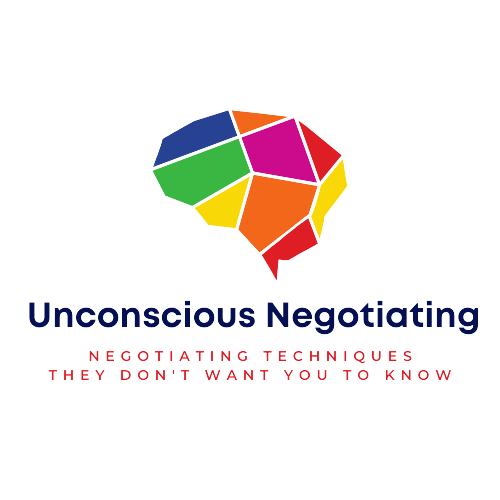Negotiation is an invaluable skill, not just in the world of business but in everyday personal interactions as well. It’s about reaching an agreement, with an understanding that both parties have different views and needs. But how do you improve your negotiation skills?
In this blog post, we’ll be diving into the methods to become better at negotiating. We’ll start by understanding the core principles, then we’ll explore effective strategies, and lastly, we’ll share tips on how to handle difficult situations. By the end of this post, you’ll have a deeper understanding of the art of negotiation and be equipped with practical tools to help you win both in the boardroom and in life. You’re just steps away from becoming an expert negotiator. Let’s begin.
Developing Effective Communication Skills

Good negotiation is rooted in effective communication.
To master this, start by actively listening to your counterpart. Don’t just wait for your turn to talk; instead, focus on understanding their concerns and objectives.
Next, practice clarity. Be straightforward about your wants, but be careful not to seem domineering. Remember, negotiations are about collaboration not confrontation.
Moreover, develop empathy. Understand and respect the perspectives of others. This will help build trust and make the negotiation process smoother.
Lastly, boost your emotional intelligence. Recognize and control your emotions during negotiation. Do not let frustration or desperation throw you off your game.
By adopting these communication practices, you can negotiate more efficiently while maintaining positive business relationships.
Learning to Listen and Understand Others

Mastering the art of negotiation starts with developing one’s listening skills.
Often, we are so eager to put our points across that we neglect other parties’ perspectives. We must remember that good negotiators aren’t just persuasive speakers, but attentive listeners.
Listening is not merely about being silent when someone else is speaking. It involves active engagement. Understand their viewpoints, identify their needs, and connect with their concerns emotionally. This deeper understanding will help you respond more accordingly and convincingly.
Another essential skill is empathy. Put yourself in their shoes. This understanding breeds respect, and respect, in turn, fosters agreements.
Every negotiation is a learning experience. Every conversation you have will give you a doorway into their perceptions, hopes, and fears. With conscientious listening and empathy, you will not only become a better negotiator, but also a better communicator overall.
Utilizing Persuasion Techniques in Negotiation

Mastering negotiation isn’t just about pushing for what you want aggressively. It’s about utilizing the art of persuasion to create a win-win scenario for both parties involved.
Consider the use of the ‘reciprocity’ principle. People are more inclined to give back when they receive something. So, kick-start negotiations by offering a concession. This sets a positive tone and pressures the other party to concede as well.
Similarly, practice the ‘authority’ principle. Establish your credibility and expertise in the beginning. This could be sharing your years of experience in a field, or providing evidence-based facts and figures to back up your stance.
The ‘scarcity’ principle can also be powerful. Highlight the unique benefits of your proposal that others might not offer. This creates a sense of urgency and makes your proposition more attractive.
These persuasive techniques, when used mindfully, could give you an upper edge in negotiations.
Building Confidence and Assertiveness

Developing confidence and assertiveness is crucial for effective negotiations. Confidence equates to believing in your thoughts and ideas, persevering in the face of disagreement.
Cultivating confidence isn’t quite as difficult as some may think. Begin by defining clear goals. Understand exactly what you hope to accomplish and believe in the value of your offerings.
Assertiveness, on the other hand, boils down to expressing your needs straightforwardly and respectfully. You need to understand and respect your stand, and also lend a listening ear to opposing views without relinquishing your position too easily.
It’s important to practice these qualities regularly. Rehearsing scenarios and responses aloud can help. Remember that respect and active listening can strengthen your assertiveness without sacrificing relationships. This two-pronged strategy can significantly enhance your negotiating skills.
Recognizing and Handling Manipulation Tactics

Master negotiators know that not every negotiation technique is ethical. As such, recognizing and handling manipulation tactics is key.
First, you need to properly identify them – fast talking, diversion, intimidation, and guilt-tripping are some examples. These tactics aim to knock you off balance and pressure you into accepting terms that may not be favorable.
Handling them involves a firm but steady approach. Remain calm and do not react impulsively to provocations. Instead, confront these tactics directly, without aggression.
For example, if someone tries pressuring you with limited-time offers, ask for time to consider their proposal. If they persist, it’s likely a manipulation. Remember, a good deal will withstand scrutiny. Always trust your instincts and maintain your poise.
Becoming proficient at spotting and countering manipulation protects your interests and sets the stage for reciprocal, beneficial negotiations.
Applying Win-Win Negotiation Strategies
Negotiation isn’t about ‘winning’ at the expense of the other party. Instead, it’s about finding a mutually beneficial solution – a win-win outcome. Adapting win-win negotiation strategies proves beneficial in both professional and personal situations.
Firstly, start framing your discussion with mutual gains in mind. The goal isn’t to get the better of your counterpart but to create a solution where both parties benefit.
Take time to understand the other party’s needs and interests. Empathy isn’t a weakness in negotiation; it’s a strength. Moving beyond your position and considering the other party’s viewpoint can provide surprising insights.
Offer more to get more. Giving extra value can open doors for receiving added benefits.
Finally, always remember, a successful negotiation builds relationships, not ruins them. Your charming grand finale should leave the door open for future opportunities.
Reading and Leveraging Body Language

Understanding the nuances of body language can significantly enhance your negotiation skills.
Making eye contact, for instance, portrays confidence, authenticity, and trustworthiness. It shows you are engaged, thereby encouraging your counterpart to open up.
On the other hand, observe subtle changes in posture, facial expressions, and hand gestures. These cues can signal whether they’re open to further discussions or are closing up.
But also remember, mirroring body language can help establish rapport. However, be cautious – it needs to be subtle and natural.
Finally, remember, body language isn’t universal, cultural considerations may apply. It’s a fine balance – while understanding others, also be aware of what your body language is communicating.
Be patient and practice, it may not come immediately but eventually will become an invaluable tool in your negotiation arsenal.
Practicing Negotiation Skills through Role Play

One effective way to enhance your negotiation skills is through role-playing. This hands-on approach allows you to take on the persona of both the negotiator and the person being negotiated with, exposing you to various perspectives.
Start by defining a scenario, carefully choosing roles, goals, and possible outcomes. Then, step into these characters and involve yourself in mock negotiations. Pair up with colleagues and swap roles to understand different views better.
Remember to take it seriously – your learning depends on your level of commitment. It may feel awkward initially, but with time, you’ll find your rhythm.
After each role-play session, take some time to reflect. Identify your strengths and weaknesses and work on improving them for the next round. This practice will give you a firm base for real-life negotiation situations.





0 Comments